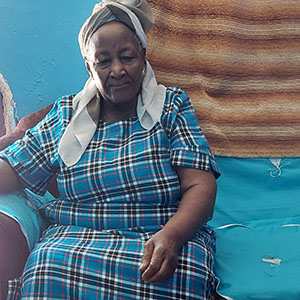Closeness as a mediator in providing and receiving social support on the social well-being of older persons in Kitui County, Kenya

Accepted: 1 March 2022
Appendix: 58
HTML: 3
All claims expressed in this article are solely those of the authors and do not necessarily represent those of their affiliated organizations, or those of the publisher, the editors and the reviewers. Any product that may be evaluated in this article or claim that may be made by its manufacturer is not guaranteed or endorsed by the publisher.
Authors
Research on the social well-being (SWB) of older persons in relation to social support provided and received has generated considerable amount of scholarly debate. Social support received or provided has been found in literature to produce mixed effects (positive and negative) on SWB, necessitating further research. The current study provides Kenyan evidence to a corpus of research mostly focused on European and American studies, contributing to the current discussion on SWB. Thus, the aim of the present study is to investigate how closeness to close network members (CNM) influences older persons’ satisfaction with social support provided and received. The study adopted a descriptive cross-sectional study design and mixed methods approach. Chi-square analyses were conducted, and the results revealed that there was a significant relationship between closeness and satisfaction with providing social support with exact P value of 0.002. In addition, there was a significant relationship between closeness and satisfaction with received social support with exact P value of 0.000 (P<0.05). The research highlights that closeness to CNM enhances SWB when older persons provide or receive social support.
How to Cite

This work is licensed under a Creative Commons Attribution-NonCommercial 4.0 International License.
PAGEPress has chosen to apply the Creative Commons Attribution NonCommercial 4.0 International License (CC BY-NC 4.0) to all manuscripts to be published.

 https://doi.org/10.4081/gc.2021.10293
https://doi.org/10.4081/gc.2021.10293



